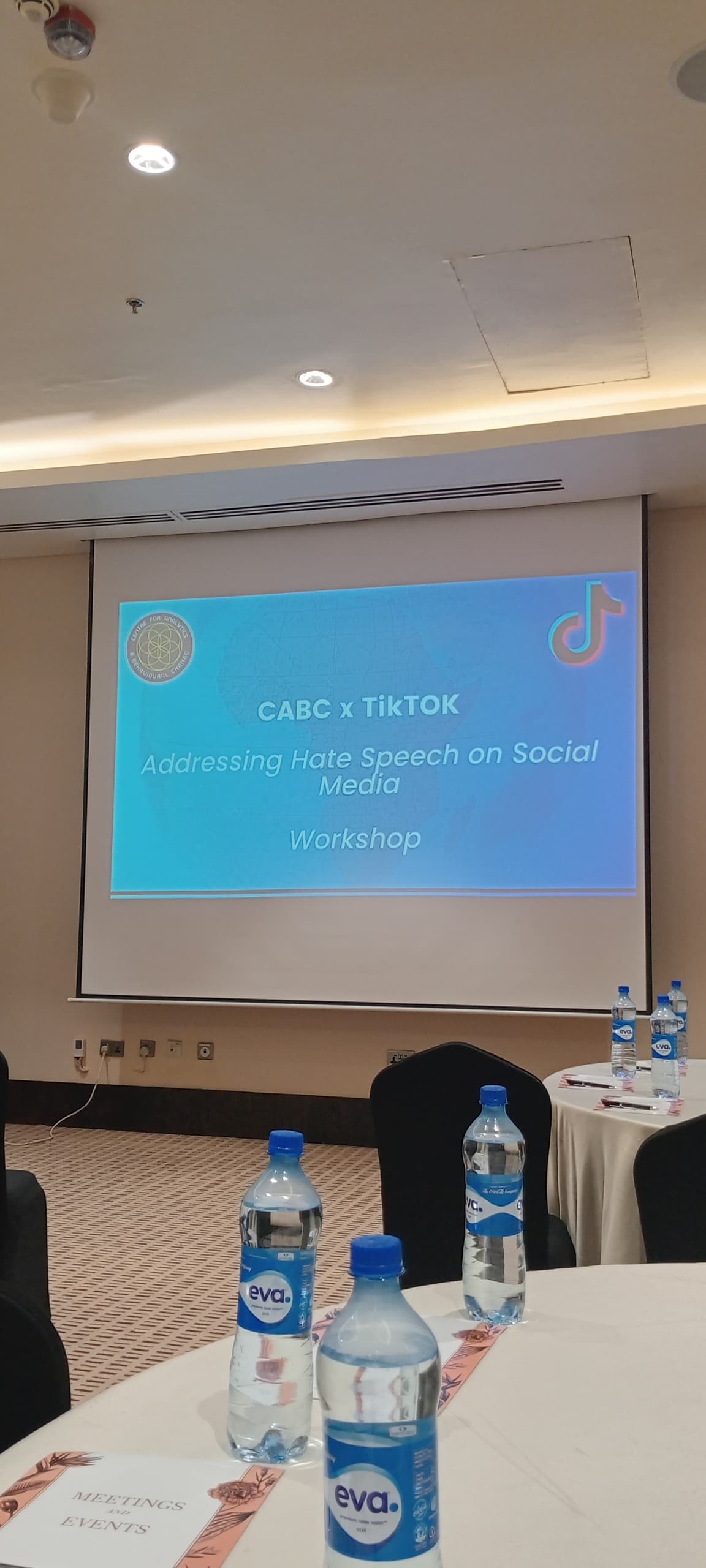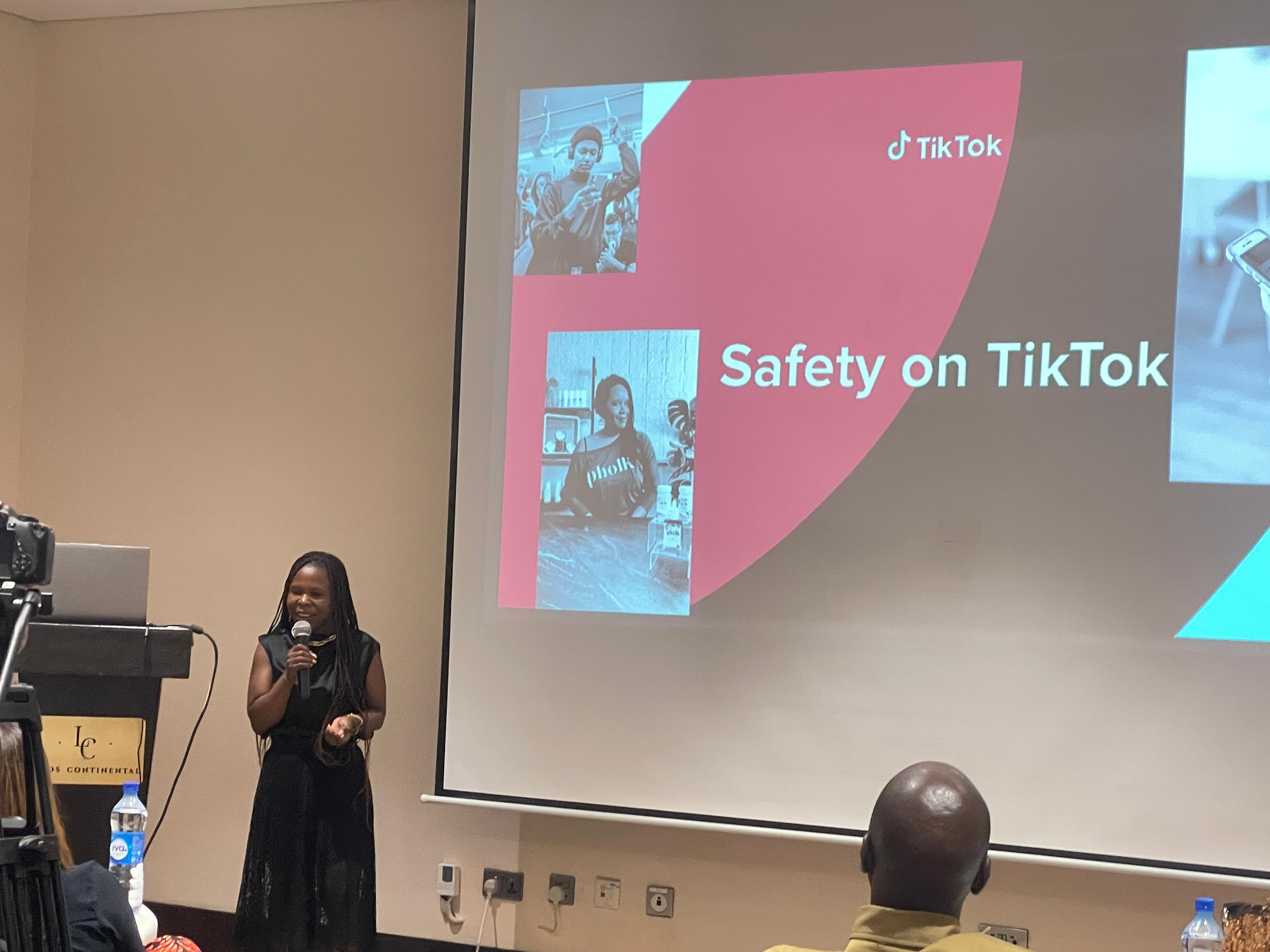







































TikTok, CABC to tackle online gender-based violence in Nigeria
 2024
2024
 2024
2024
 CAG
CAG
In a significant step toward making digital spaces safer, TikTok and the Centre for Analytics and Behavioural Change (CABC) held a roundtable in Lagos to address the pressing issue of tech-facilitated gender-based violence (TFGBV) in Nigeria.
The session focused on content moderation strategies, specifically targeting hate speech that disproportionately affects women and girls. The meeting laid the groundwork for a collaborative effort aimed at tracking and disrupting harmful online narratives, with a particular focus on empowering digital communities.
Jesse Cann, the Head of Research at the Centre for Analytics & Behavioural Change (CABC), a non-profit organisation based in Cape Town, South Africa, said:
“What we are doing with TikTok is to keep users safe from harmful content on social media platforms. That’s really what it’s all about. We are focusing on hate speech today specifically. And, we are really centring on gendered hate speech and hope to put women and girls at the centre of the conversation today, which is so important.”
The roundtable brought together a diverse group of key stakeholders committed to combating online harm.
At the event, Tokunbo Ibrahim-Okuribido, the head of government relations and public policy manager for TikTok West Africa, provided insights into the platform’s regional strategy.
Also present was Keagile Makgoba, TikTok’s head of communications for sub-Saharan Africa, and Dudu Mkhize, the outreach and partnership manager for TikTok. Their presence underscored TikTok’s commitment to engaging directly with local experts and organisations to develop effective, context-specific solutions for the Nigerian market.

The Lagos roundtable, which began with an overview of the agenda, included a presentation by TikTok on its content moderation practices, followed by a roundtable discussion and breakout sessions.
It focused on understanding and addressing gendered hate speech with an emphasis on protecting women and girls.
About the Centre for Analytics and Behavioural Change (CABC)
The Centre for Analytics and Behavioural Change (CABC), a non-profit organisation founded in 2019 in South Africa, is the first and only of its kind in the country. It is independent, evidence-driven, and powered by data storytelling and a commitment to social change.
The CABC works across a variety of areas, including social and political division, social prejudice, public health, and platform safety. They partner with platforms like TikTok and expose coded language used by pedophile networks on platforms like X.
The CABC was founded to address the weaponisation of the internet. While the internet was initially envisioned as a tool for connection and democratizing information, it has become a polarised space used to divide, confuse, and exploit.
The CABC’s core mission is to track, expose, and disrupt harmful online narratives and to build safe and empowered digital communities.

TikTok’s safety strides in Africa
In recent years, TikTok has reiterated its ongoing commitment to keeping its African users safe.
Recall that in TikTok’s Q2 2024 Community Guidelines Enforcement Report, the company indicated that over 2.1 million videos were removed from the platform in Nigeria. This is less than 1% of the total videos uploaded in the country.
In November 2022, TikTok launched its #SaferTogether campaign in Nigeria, the first in Sub-Saharan Africa. At the event, the company also announced a partnership with the Data Scientists Network (DSN) to support its awareness programme.
Through the partnership, DSN conducted in-community workshops with parents, teachers, and guardians in schools in Abuja and Lagos, educating and empowering them to understand the digital world and how they can help young people stay safe online.

In the Community Guidelines Enforcement Report, the company also pledged its commitment to strengthening content moderation systems to safeguard its diverse community.
“As TikTok continues to invest in cutting-edge moderation technologies, its commitment to transparency and platform safety remains at the forefront, ensuring a secure environment for its diverse user base across Nigeria and globally”, the report reads.
In June 2024, the platform removed over 178 million videos globally. Of these, 144 million were removed through automation. These technical advancements reduce the volume of content that moderators review, helping alleviate human exposure to violent videos.
While TikTok is primarily known for its entertainment content, it has evolved into a versatile platform for promotion, education, and social activism. Businesses and creators use it to build communities and reach a vast audience, with its high engagement rates surpassing those of many other social networks.

